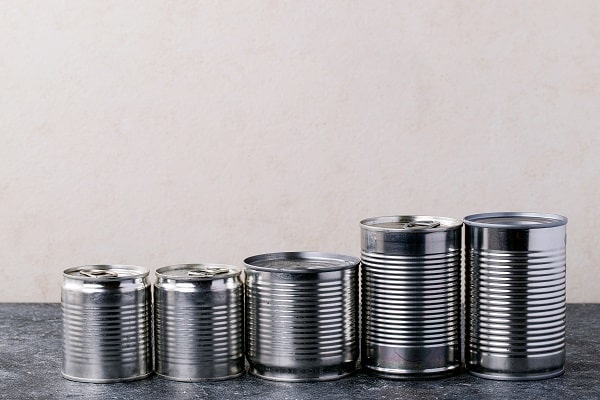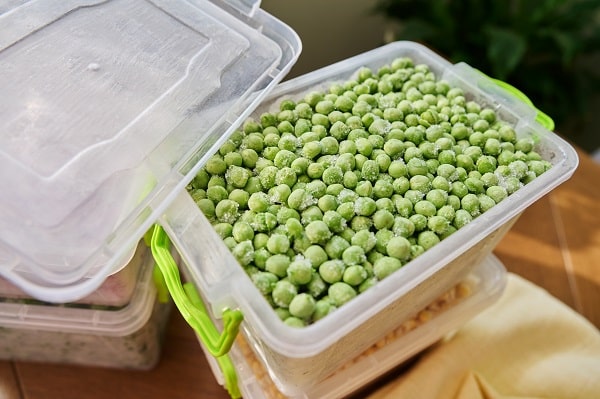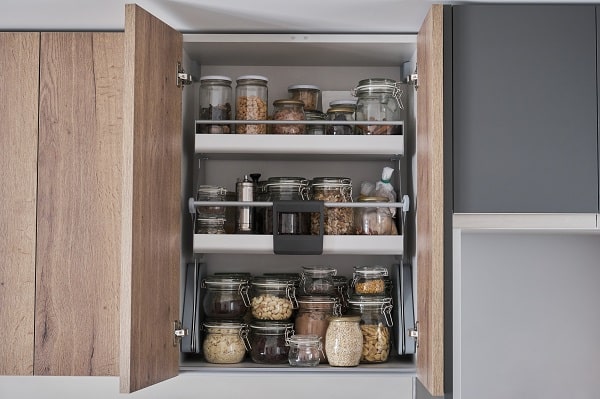Stocking up on foods in bulk can be a lifesaver for a variety of reasons. It can save you money, time, and the unnecessary stress of frequent grocery store trips. Besides, it helps reduce packaging waste, contributing to the planet’s well-being. Moreover, keeping certain nutrient-rich foods in bulk ensures you always have the means to prepare healthy, wholesome meals for you and your family. So, what are the foods that you should always buy in bulk? Let’s dive into it.
The Nutritional Powerhouses: Foods Packed With Nutrients

Stocking up on nutrient-dense foods like whole grains and legumes can serve you well in the long run. Whole grains such as quinoa and oats are the go-to sources of essential nutrients like fiber, protein, and numerous minerals. Quinoa, often termed as a ‘superfood,’ is a complete protein source and gluten-free, making it perfect for people with dietary restrictions. It’s incredibly versatile, being a great addition to salads, stews, and even breakfast cereals.
Conversely, oats are known for their heart-healthy benefits, primarily due to their high fiber content. They are excellent for breakfast and can be turned into overnight oats, granola, or added to baked goods for extra nutrition. Moreover, legumes like chickpeas and lentils are excellent sources of plant-based protein and fiber. They are perfect for bulk buying due to their long shelf life. Chickpeas, for example, can be used in a myriad of dishes, ranging from salads and soups to hummus and desserts. Lentils are quick to cook and are packed with protein and fiber, perfect for a quick, nutritious meal.
Sweet Tooth Stash: Healthy Bulk Foods For Desserts

Purchasing nuts and dried fruits in bulk is an excellent idea if you’re someone who loves to have a sweet treat now and then. Almonds are loaded with heart-healthy fats, proteins, and fibers, making them a perfect healthy snack option. They offer a satisfying crunch and can be tossed into salads, added to oatmeal, or eaten as is for a quick energy boost.
Similarly, dried apricots are delicious and nutritionally rich. They are loaded with vital vitamins and fiber, making them an ideal healthy snack. You can add them to your morning granola, serve them on a cheese platter, or simply enjoy them on their own for a sweet yet healthy treat.
Flavor-Filled Pantry: Spices And Herbs In Bulk

Buying spices and herbs in bulk is not just economical but also beneficial for enhancing the flavor profile of your meals. Herbs and spices like turmeric and basil have a long shelf life and provide a burst of flavor to your dishes. Turmeric, often referred to as the ‘golden spice,’ is loaded with anti-inflammatory properties, adding taste and health benefits to your meals.
Basil, also known as the ‘king of herbs,’ is another wonderful herb to stock up on. Besides packing several health benefits, it brings a unique aroma and taste to your dishes. Be it pasta, pizza, or a refreshing basil lemonade; this herb never fails to impress!
Store For More: Reasons To Stock Canned Foods

Having a stash of canned foods can be quite handy, especially on busy days or during emergencies. Canned tomatoes and tuna are great options to keep in your pantry. Tomatoes form the base for many recipes, like pasta sauces, soups, and stews. Not just that, they are a rich source of lycopene, a powerful antioxidant.
Furthermore, canned tuna is an easy and quick source of lean protein. It’s a great addition to salads, sandwiches, or pasta dishes, offering both convenience and nutrition in a can. Along with canned tomatoes and tuna, other options include black beans, kidney beans, coconut milk, corn, olives, and more! With their long shelf life and easy-to-store nature, these are must-haves in every pantry.
Freezer Staples: Frozen Foods For The Win

Frozen foods are excellent for retaining the freshness and nutritional value of produce, making them an ideal choice for bulk buying. Frozen fruits and vegetables like berries and spinach are must-haves in every freezer. Berries are rich in antioxidants and vitamins. They can be used in smoothies, added to your breakfast cereal, or used in desserts. Their versatility and nutrient content make them an excellent addition to your meals.
Spinach, on the other hand, is a green leafy vegetable packed with iron and calcium. Frozen spinach retains these nutrients and is easy to incorporate into a variety of dishes, including stews, curries, and even smoothies. Its nutritional profile and versatility make it an excellent frozen food to have on hand.
Super Hydration: Drinks To Keep In Your Pantry

Staying hydrated is crucial for your health. While water is the best source of hydration, having a variety of beverages can also help keep you hydrated while offering various health benefits. Green tea, for instance, is an excellent source of antioxidants and a healthier alternative to caffeinated drinks. You can enjoy it hot or cold, making it a perfect all-year-round beverage.
Moreover, coffee is a staple beverage for many people. It’s known to enhance physical performance, improve mental alertness, and is packed with antioxidants. So, having a good stock of your favorite coffee beans can ensure you start your day on the right note.
Cost-Effectiveness Of Buying In Bulk

Bulk buying is a strategy that more households are turning to for its economic advantages. By choosing to buy larger quantities, consumers often pay less per unit, translating to significant savings over time. This is particularly true when it comes to staple foods like grains, legumes, spices, and herbs. These foods generally have a long shelf life, which means they can be stored for extended periods without spoiling. By purchasing them in bulk, you reduce the frequency of buying, ultimately saving money.
In addition to the lower price per unit, buying in bulk also allows for better budgeting and financial planning. When you buy in bulk, you typically know exactly how much you’re spending on certain food items for a given period. This can help stabilize your food budget and make your household expenditure more predictable. Moreover, bulk buying can save you time and fuel costs associated with frequent trips to the grocery store, further adding to its cost-effectiveness.
Environmental Impact Of Bulk Buying

From an environmental perspective, bulk buying can significantly reduce waste generation. The packaging involved in smaller, individually packaged items often results in unnecessary waste, much of which ends up in our oceans and landfills. By purchasing foods in bulk, you can effectively minimize the amount of packaging waste you contribute to the environment. Bulk items generally come in larger, often recyclable bags or containers, resulting in less packaging waste per serving compared to their smaller, individually wrapped counterparts.
Not only does bulk buying help in waste reduction, but it also contributes to lowering the carbon footprint associated with food production and transportation. Small packages require more packaging materials and energy for transportation, both of which increase their environmental impact. Conversely, due to their size and weight, bulk items require less overall packaging material and space during transportation, reducing the associated carbon emissions.
Consider All The Foods You Should Buy In Bulk!
Bulk buying is not just an innovative and economical way to shop; it also ensures you’re stocked up on healthy, versatile foods. It’s a surefire way of filling your pantry, reducing frequent grocery store trips, and cutting down on packaging waste. With careful planning and storage, bulk buying can be your stepping stone to a healthier, more sustainable lifestyle. From grains and legumes to canned foods and beverages, the options are many. So, the next time you go grocery shopping, consider the different foods you should buy in bulk and start reaping the benefits!


